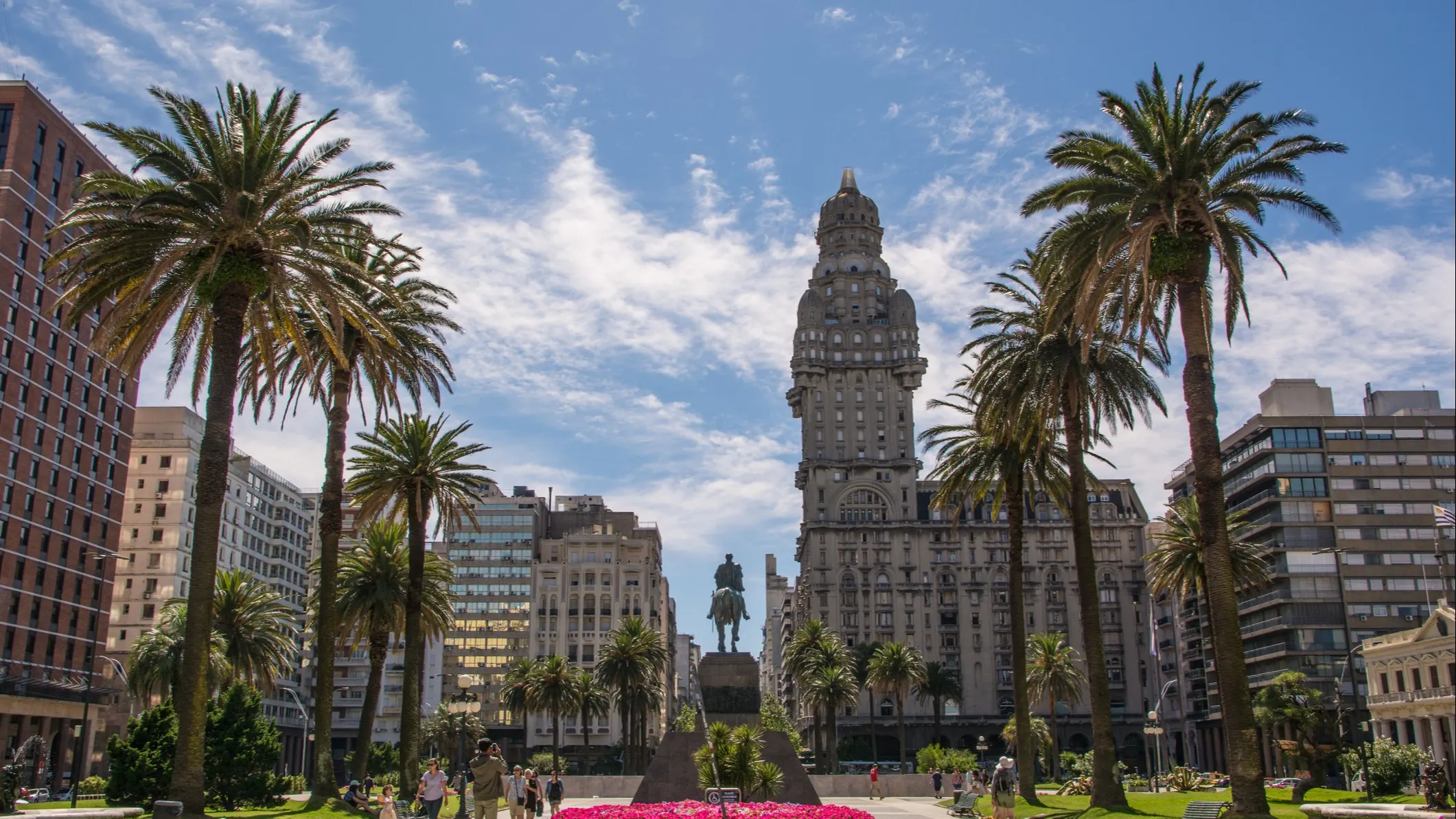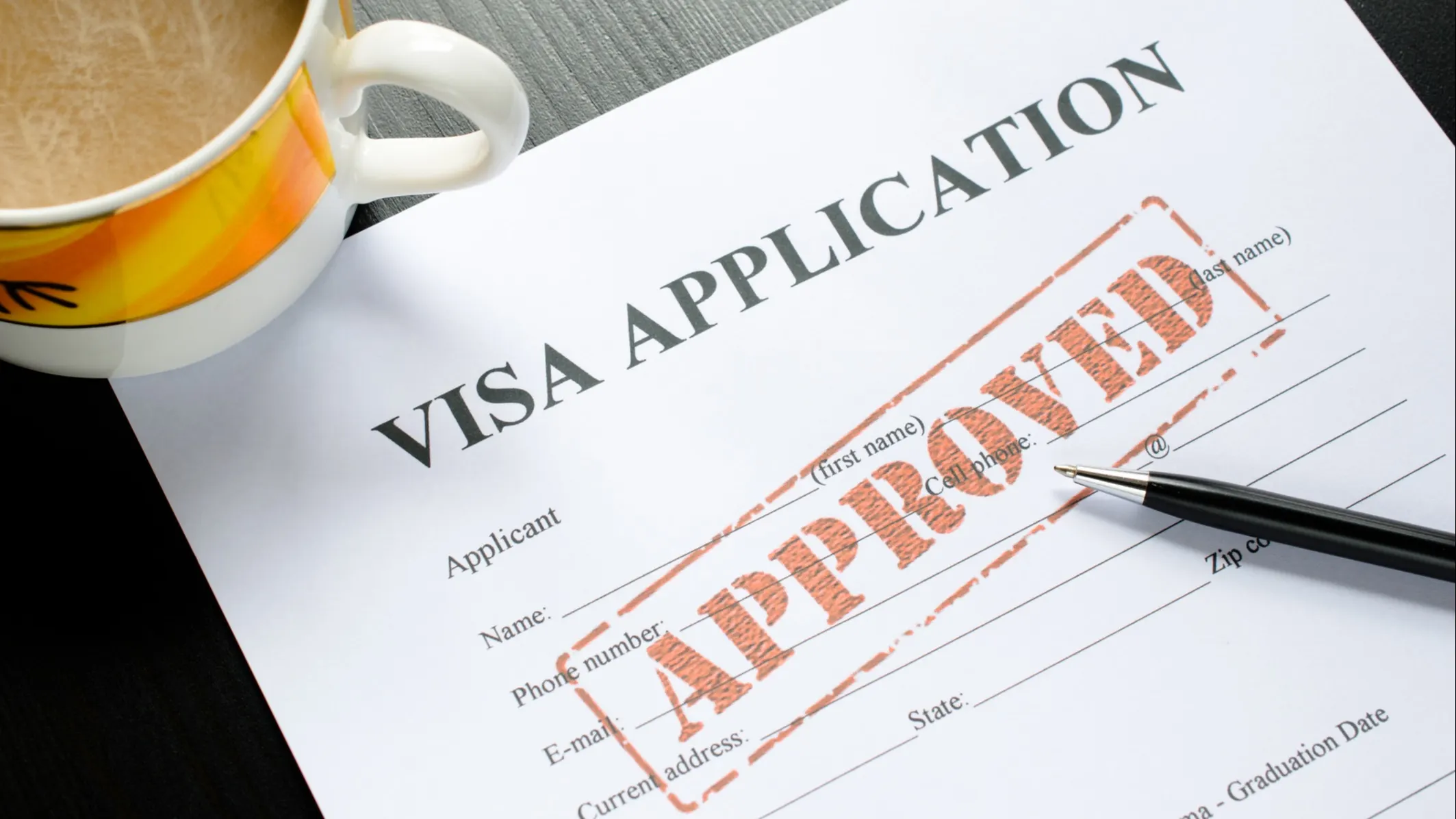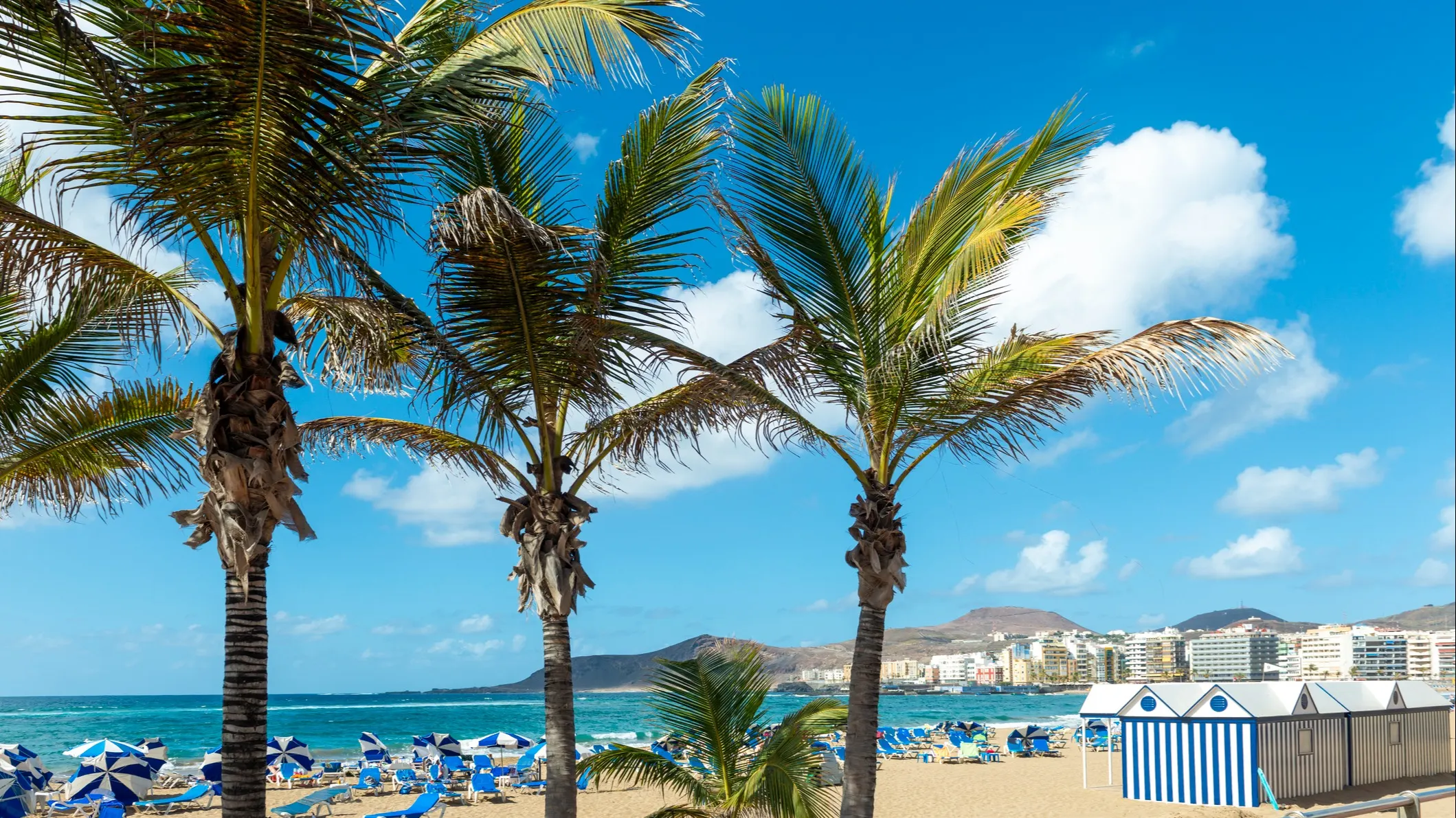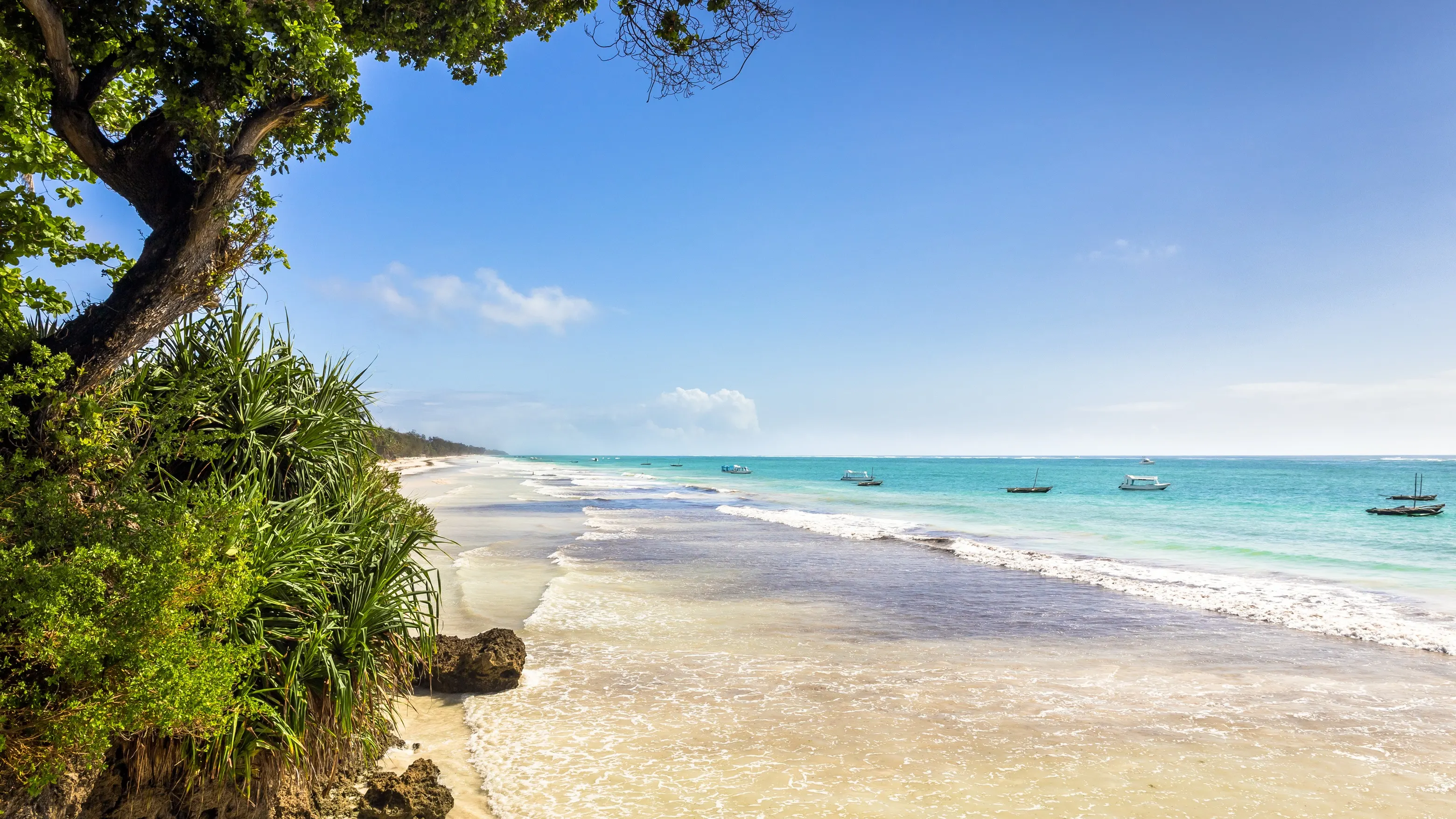What’s on your mind? If you’re like most people in the U.S. right now, you’re likely wondering what’s next...what will the coming years bring? For most of us, it’s a question with no simple or reliable answer.
To be clear, it’s not just seniors with financial insecurities considering an overseas move.
According to research by Henley & Partners—the world’s largest global residence and citizenship advisory firm—128,000 high-net-worth global citizens (those Henley describes as having more than $1 million of liquid investable assets) are expected to move to another country this year.
A record number are U.S. citizens. In the last four years, Henley says, inquiries from Americans seeking a second passport or alternative residence have skyrocketed by 504%. Citing civil and social unrest and political attacks on democracy, along with growing opportunities and lower taxes overseas, well-to-do Americans are opting for more welcoming places like Portugal, Malta, Spain, Greece, and Italy, says Henley.
You Could Fly Away from Here!
You Could Fly Away from Here!
Your Ticket to Explore a New Life Abroad: Win a Flight to a Destination of Your Choice

By submitting your email address, you will receive a free subscription to IL Postcards and special offers from International Living and our affiliates. You can unsubscribe at any time, and we encourage you to read more about our Privacy Policy.
From Gen Z to Baby Boomers, We All Want a Better Quality of Life

And it’s not just those of retirement age. The “move overseas” trend extends from Gen X to Millennials to Gen Z. A recent poll shows that 1 in 4 Gen Z respondents (those 26 and younger) hope to move overseas for a lower cost of living, to escape the political climate and gun violence, and for improved social services such as free healthcare.
On the cusp of the Gen X and Baby Boomer generations, 58-year-old Jeff Opdyke says, “My favorite part of living in Europe is the lack of politics. I hate—with the white-hot intensity of 1,000 suns—politics in the U.S. today. The red-blue divide has destroyed the America I grew up in. But here in Europe, no one ever asks about American political issues… except to wonder what I think of my homeland’s decline.
“And those conversations are more curiosity than confrontation. When I visit the U.S., though, the disdain for anyone who thinks differently is palpable. I’m exceedingly happy I’m away from that.”
Jeff saw the handwriting on the wall and moved to Europe from the U.S. before the 2020 election. Today, he lives happily with his family in the pretty seaside town of Cascais, Portugal.
Although it’s one of the country’s more upscale locales, Jeff says, “I pay $2,200 for my three-bedroom, two-bath apartment. That’s my biggest expense. Full coverage health insurance to cover all of us is less than $200 a month. All in, my three-person family (with a son in private school) lives on $3,500 to $4,000 per month, and that’s living quite comfortably.”
There are other safe and quiet corners of the world where your money goes even further...in lovely fair-weather pockets of Europe, Southeast Asia, or Latin America, a couple or even a family can live very well on as little as $1,500 to $2,000 a month.
And you needn’t give up a thing to do that.
Top Reasons to Move Overseas: Lower Cost of Living, Less Taxes, a More Laidback and Healthier Lifestyle, and More Affordable-But-Quality Healthcare

It’s true. There are places in the world where you can enjoy an excellent quality of living with inexpensive but first-rate healthcare, high-speed internet, safe and affordable public transportation options, exceptional cuisine, and better weather.
Take it from Donna Stiteler, who’s living “the good life,” as she tells it, in Cuenca, Ecuador.
“I’m from Florida where it was so hot you had to wear oven mitts to drive in the summer as the steering wheel was too hot to touch otherwise. And forget about walking anywhere. Now, though, I live in the mountains near the equator, and the climate is Springlike every day.
“There is fresh produce in season year-round and it’s a pleasure to walk everywhere in this beautiful UNESCO World Heritage city. You don’t need AC or heat and that helps keep costs low. You can easily live...healthier and happier...for $1,500 to $2,000 a month here.”
Plus, she says “Each morning I wake up and take a look at U.S. news, and it confirms why I’m so much more at peace living in Ecuador and away from the politics, inflation, and outrageous housing prices and rental increases. It's still very livable here on less than $2000 a month. Sure, Ecuador has its problems, but here in Cuenca it's safe and I walk around town without fear. In fact, Ecuador is NOT a divided country and kindness prevails in our culture. I'm lucky to be here.”
That’s a sentiment shared by former Texan Judy Nusbaum Henss.
“There is a lot of political unrest in the U.S.,” she says, “and I was looking for a peaceful place where I could relax and release the anxiety in my body. Thankfully, I’ve found that in Costa Rica.”
High on a rainforested hillside overlooking pristine Lake Arenal and its majestic volcano, Judy and her husband Rudy built a spacious home and guesthouse. It’s a view that can’t be beat, they say.
"And the best news is that our yearly property taxes are just $800!"
David Hammond moved to Uruguay in 2006 for a variety of reasons: seeking a new adventure, a simpler life, and to invest in real estate. While healthy living wasn't initially a priority for him, he now says it's one of the aspects of life in Uruguay that he appreciates the most.
“I do more walking here than ever before,” he says. “I walk for transportation, I walk for exercise, and I walk with others as a social activity.
"In my neighborhood, like most, you find a small market, butcher shop, bakery, café, hardware store, pharmacy, and health-food store. With everything so close, I do all my day-to-day shopping on foot.
“In most Montevideo neighborhoods, a street market called a feria (fair) sets up twice a week. The feria in my neighborhood is on Tuesdays and Fridays and stretches a full city block. It’s where I buy fresh local produce, freshly-caught fish, and Uruguayan cheese.”
David also believes Uruguay's low cost and comprehensive healthcare coverage reduce his financial stress, further elevating his quality of life.
“For many in the U.S., the chance of runaway medical costs is a financial threat. Even with Medicare, the average U.S. couple may need hundreds of thousands of dollars for healthcare and medical care costs in retirement. Fortunately, in Uruguay, it’s a different story.”
“Healthcare in Uruguay offers several fantastic benefits compared to the system in the U.S., such as significantly more affordable rates, a greater emphasis on early diagnosis and prevention, and predictable and easy-to-understand billing.”

If You, Too, Are Looking for Affordable, Relaxed Living...Far From the Noise...We Can Help
As contentious politics continue to ramp up in the United States, more and more people are researching their options to move far, far away from it all.
There are ever-growing concerns about equality and healthcare issues, increasing gun violence, climate disasters, rampant consumerism and, of course, the economy.
Moving overseas to a place that’s far from the chaos, far more affordable, with a better climate and people who aren’t much concerned with what’s going on in the States can be a welcome relief, indeed.
The Contentedness of Being Outside Looking In

As International Living senior editor Dan Prescher—an expat of more than 20 years—says, not being bothered by the politics of home is refreshingly easy when you live abroad.
“Watching it from afar gives you a new perspective on things,” he says.
“I compare U.S. politics to a bar fight...a brawl between two groups of opinionated patrons who’ve had too much to drink. They take things personally, abandon reason and logic, and just try to yell louder than anyone who disagrees with them. And the louder they get, the meaner they get.
“If you’re inside the bar when the voices rise and the insults and punches start to fly, it’s hard to maintain rationality and objectivity. Even if you refuse to pick a side, if you’re in the room, you’re automatically involved. Your adrenalin shoots up and you become defensive. You’re just as likely to be hit by a thoughtless insult, bottle, chair, or haymaker as anyone else.
“On the other hand, if you’re outside the bar, the whole thing looks like a pointless and dangerous waste of time, energy, and good booze.”
It’s this “outside-the-bar” perspective that you get when you’re an expat, Dan says. He admits that some expats have political rows, too. But in his experience, those typically come without name-calling or resorting to threats.
If you’re ready to turn down the volume and find a more agreeable place to live your best life, let’s get started...
How To Move Out of the U.S.
How To Move Out of the U.S.
The policy implications of this election will impact your retirement funds, taxes, healthcare, and more. But you can protect yourself, your family, your future. In lots of safe, warm, friendly spots abroad, you can live comfortably on a budget from $2,000-$3,800 a month (all-in—housing and extras included). We’ll show you how—and where—to go.

By submitting your email address, you will receive a free subscription to IL Postcards and special offers from International Living and our affiliates. You can unsubscribe at any time, and we encourage you to read more about our Privacy Policy.
First, a Quick Primer: What You Need to Know About Leaving the U.S.
• You don’t give up your U.S. citizenship. You simply obtain a resident visa in your country of choice.
• You can continue to receive your Social Security benefits via direct deposit to banks in 172 countries around the world. (Or, folks who choose a part-time overseas solution typically continue to bank in the US, accessing their funds through ATMs abroad.)
• You don’t have to give up Medicare, either, and with the right supplement or Advantage plan, you can access your benefits overseas in case of emergency. Many expats augment that with a medical evacuation policy to fly them back to the States if needed.
• If you’re a “work for anywhere” digital nomad, you’ll find many governments offer exciting, benefit-rich visa options and incentives, often including tax exemptions and low-cost health plans.
• You can position yourself to be eligible for a second passport—which can give you more flexibility in where you travel and live, and in your ability to work abroad. But you don’t have to have a second passport to move overseas.
• If you’re moving with children, the global perspective they gain is life changing. By the way, colleges and universities are typically far more affordable overseas...sometimes even free.
For more in-depth information on moving to the countries mentioned in this article, see below:
There are many benefits to moving outside the United States and some drawbacks, too. But the actual process, while definitely doable (millions of Americans have done it), is not as straightforward as moving within the U.S., which you may have done in the past.
Here are some of the steps you should take when planning to move out of the U.S., no matter where you’re planning to move.
How to Profile Yourself and Find Your Spot

The first step on your journey to moving abroad is to look within.
What you must do is ruthlessly profile yourself. Think deeply about your needs and wants, in several areas:
What level of spending are you comfortable with…what can you afford to pay for rent, healthcare, and living expenses?
What level of healthcare do you need, and what can you afford to pay? Do you need specialist care due to a chronic condition?
Ease of transition. Remember, you’ll have to learn a new culture when moving abroad. But are you also comfortable with learning a new language? Do you need certain familiar items at supermarkets? Consider how easy it might be to get a residence visa or otherwise navigate the local bureaucracy.
How easy is it to get to and forth from your home country, for visits back home or for visiting family and friends.
Is there a community of expats? Or will you have to integrate more into the local culture? Which option appeals more to you?
Are there homes for sale and rent at reasonable prices? What can you afford—and is it available?
Do you like four seasons…or warm weather year-round? Is the heat and humidity of the tropics 365 days a year—and intense rainy season—too much for you to bear?
Is there enough to do to keep you occupied? Are you content with relaxing on the beach and enjoying seafood meals at simple restaurants? Or do you need a symphony orchestra and fine dining?
Look at all these factors and prioritize them in order of importance. Consider what your must-haves are. There could be other factors too, like the availability of assisted living or the potential to start a business. Then do you research. There is plenty of information available in International Living and other online resources. Join Facebook groups for locations you’re interested in.
Your goal is to find locations that match up with your profile. Places that have all or some of the things you need and want. Your ideal location is out there. You just need to find it.
How to Secure Your Residence Visa

Several countries make it quite easy for retirees to obtain visas. They have dedicated retirement programs. For example, Costa Rica has its pensionado program, which allows a person and their spouse to live there full-time. The main requirement is a guaranteed $1,000 a month in income from Social Security or a retirement fund. Belize’s Qualified Retired Persons program requires you to be over 45 years old; have $2,000+ in income from Social Security, pension, or annuity; stay in Belize 30 consecutive days annually; and pass a criminal background check. As part of the program you can import a car and/or boat tax free, as well as your household goods. You’ll be tax exempt on all income from outside Belize.
In Europe, there are also visa programs. In Portugal, for example, the Type 1 visa is available to those who have private healthcare insurance valid in Europe and sufficient funds to cover the cost of living in the country. You first receive a temporary visa, good for one year. You can renew for two years twice. Then you can convert to a permanent resident.
In Mexico, where there an estimated 1 million retirees and other expats from the United States living full or part-time (as well as a half-million Canadians), there is no designated retirement visa. But it’s quite easy to receive a temporary or permanent residence visa. For temporary residence, you need only about $1,400 a month in income to qualify—and you can bring you U.S. plated car into the country.
In many countries, getting a visa is the first step to eventual citizenship and a second passport; a process that usually takes years and could require you to learn the local language.
How to Make Money While Living Abroad

If you still need to generate an income while living abroad, you’ll have to keep in mind that most countries don’t want you to take a job from a local. And many residence visas for foreigners do not allow you to work. Besides, the salary you might make would no doubt be much lower than the U.S. anyway. That doesn’t mean you can’t make money. There are plenty of options.
1. You Could Work Remotely With Your Current Job
In many jobs you essentially sit at a desk and interact with colleagues or customers via email, phone, instant message, or other online communication. Face to face time is rare. In that case why not do it from a location overseas? With high-speed internet available just about everywhere, it’s not difficult. What about meetings? You could join in via video conference with software like Skype or through a teleconference line.
2. You Could Work Online as a Freelancer
You could take the skills you have now and start offering your services as a freelancer or consultant. You’ll be working with clients around the world online. You could even take on a new skill.
Some examples of good freelance careers include proofreading and editing, content writing for websites, copywriting (which is advertising writing), graphic design, website design, and many more. You could also be a virtual assistant, which is like being an administrative assistant but remotely—helping someone organize their business and schedule.
You find these jobs through referrals or online job sites like Upwork.
How To Move Out of the U.S.
How To Move Out of the U.S.
The policy implications of this election will impact your retirement funds, taxes, healthcare, and more. But you can protect yourself, your family, your future. In lots of safe, warm, friendly spots abroad, you can live comfortably on a budget from $2,000-$3,800 a month (all-in—housing and extras included). We’ll show you how—and where—to go.

By submitting your email address, you will receive a free subscription to IL Postcards and special offers from International Living and our affiliates. You can unsubscribe at any time, and we encourage you to read more about our Privacy Policy.
3. You Could Start an Online Business.
Again, you could take something you’re an expert on or have an interest in and transform that into a business selling products online. For example, you could sell e-books on Amazon.com, books you write or public domain works you find. You could also sell products as an affiliate, which means you advertise products on behalf of a larger company and when you make a sale you get a commission, which means you never actually have to physically ship the products or handle refunds or customer service—simple. You could also create your own digital products like guides, or videos, or online courses based on an interest expertise. These products you would sell to customers as digital downloads from your website or platforms like this.
4. You Could Start a Brick-and-Mortar Business
If you’ve always dreamed of owning a restaurant or beach bar paradise, or a clothing boutique, or an ice cream place… or any of a number of other businesses. In many countries, the cost to start and operate a business is much lower than the U.S. And there is less red tape.
5. Rent Out Your Home
One easy way to make an extra income, or in some cases cover all your expenses, is by renting out of your home in the U.S. short term through sites like Airbnb or long-term to renters who take out a year or multi-year lease. In this case you would have to own your home, of course. Also, it’s best to have a property manager handle bookings, check-ins, and maintenance on the property. They’ll get a cut of the rental income in exchange for their services.
How to Plan a Scouting Trip to Find Your Ideal Spot

It might be tempting to simply pick a location you’ve researched or once traveled to…and simply pick up and move there. But before you sell your home or sell most of your possessions, it pays to test the waters so to speak. There have been many people who always dreamed of living at the beach…because that’s where they’ve always vacationed. But once they stayed more than a few weeks, they discovered they didn’t like the heat and humidity…or the sand that always seemed to be getting in the house…or all the tourists.
This means an extended scouting trip to the location you’ve picked out. This is not a two-week vacation. Instead take two months…three months to really get to know a place. You’ll have to rent a home or apartment, which are usually available for affordable rates through a property management company or individual owner. You can even ask Airbnb or VRBO hosts if they’ll cut you a deal for a long-term stay.
Your job on this visit is to feel what it’s like to live in that location. You talk to locals and expats about their lives—the benefits and drawbacks of the place. You can go to expat meetups like Saturday morning breakfasts or sunset happy hours to find expats and get the scoop.
Go grocery shopping in local grocery stores and farmers’ markets—see what’s available and what the prices are. Visit local medical facilities—do they have the specialists and medications you need. You also check out the internet speed and reliability of electricity and water.
Are their local groups catering to a hobby of yours like crafting or poker? Figure out if it’s too noisy—does the local church set off fireworks every morning? Is the beach town too much of party spot? Is the quaint mountain village you dreamed of actually too sleepy? Is there enough of an expat population?
You explore different areas and neighborhoods of that location…and then travel around the region or even country to see if another spot strikes your fancy. The idea is to experience life fully there to see if you could be there full time and be comfortable. Again, this is not a vacation but it’s more like work as you really investigate this location.
If you’re wondering about how to move out of the U.S., you won’t get there overnight but this guide will help you to find the right location and gives you the tools and resources to stay there and enjoy a new life.
How To Move Out of the U.S.
How To Move Out of the U.S.
The policy implications of this election will impact your retirement funds, taxes, healthcare, and more. But you can protect yourself, your family, your future. In lots of safe, warm, friendly spots abroad, you can live comfortably on a budget from $2,000-$3,800 a month (all-in—housing and extras included). We’ll show you how—and where—to go.

By submitting your email address, you will receive a free subscription to IL Postcards and special offers from International Living and our affiliates. You can unsubscribe at any time, and we encourage you to read more about our Privacy Policy.
10 Good Reasons to Retire Overseas

For a better quality of life...to live happier, healthier, and with less stress.
To find the perfect weather, where you never again have to shovel snow, scrape ice from your windows, or heat your house.
To escape the 9-to-5 drudgery of a day job and work for yourself, to completely reinvent yourself, or not work at all if that’s what you choose.
To find more time to spend with your family, to pen that book you’ve always thought about writing, or to spend your mornings fishing or snorkeling.
To live more luxuriously than you ever could at home, for a fraction of the cost.
To start your own business in a country where you’ll pay fewer taxes and keep more of what you earn.
To put yourself on the ground in a place that’s about to boom, and in doing so, position yourself to profit.
To arrange your financial affairs so you’re saving on your U.S. taxes.
For the adventure of it—to learn a new language, make new friends, and explore a new world.
Access to national healthcare plans and high-quality private health care at a fraction of the price of the U.S.
Your Checklist for a Smooth Transition Abroad

By Paul Carlino
A successful move involves more than just knowing the nitty-gritty of where you will go. And while every pre-departure to-do list should include selling your things and packing your bags, there is more to it than that. After my wife, Rebecca, and I decided to move our family to Mexico, we took several months to wind things down in the U.S. Here’s a list of items we addressed before we left the U.S. (and some things we wish we had done) that will help smooth your transition to life abroad.
To Sell or to Rent Back Home
Selling your house can benefit you by removing a substantial debt (in the form of a mortgage) from your balance sheet, and provide you with a lump sum of money to purchase a property in your destination country. If it is your main home prior to the sale and you meet certain IRS ownership and use tests, you may be able to exclude or reduce your taxable gain.
On the other hand, renting your house to the right tenants can provide a steady stream of income. Because Rebecca and I are not eligible to take retirement distributions, we liked the idea of having a monthly rental income to cover our daily living expenses and reduce the amount we drew from our savings to meet these needs. Having a source of income also gave us peace of mind while we developed other business ideas.
Hire a Professional Photographer
We considered using a property management company to market and manage the rental of our house. This is ideal for a no-hassle rental experience. In the end, however, we balked at paying a month’s rent as the fee. Instead, we created our own webpage using the photos we commissioned from a professional photographer. If web design is beyond your skill set, there are multiple existing online services where you can successfully market your rental home, including Airbnb, VRBO, and Sabbatical Homes (see: Sabbaticalhomes.com).
Contact Your Home Insurance Carrier
Most policies do not cover damage that may occur while the house is being used as a rental. Instead, convert your policy to “landlord insurance” to protect against liability, property damage, and loss of income in the event your house becomes uninhabitable.
Will you allow pets or smokers? Is there a room that you will use to store personal items? You can put together a lease from different free sites found on the internet (see: Jotform.com or Thelpa.com). Consider including a clause requiring your tenants to have renter’s insurance to protect their belongings.
Create online accounts with the utility companies that service your house and with your local real estate assessment office to receive and pay bills electronically. Rebecca and I also provided our tenants with contact information for reputable companies in our area to make any necessary repairs to the house or appliances.
Vehicles
If you sell your car, be sure to notify your state department of motor vehicles (DMV). Many states will refund part of your registration fee if you no longer own the car. The date of sale is also used to prorate any state property tax due on the vehicle.
Be sure to also notify your car insurance carrier of the sale to cancel the policy and obtain a refund of a prorated portion of your premium payment.
Driver’s License
You can drive in many countries with a U.S. license.There are good reasons to keep your state-issued driver’s license when you move abroad and even to get a second copy. First, your U.S. license serves as a source of identification that can fit in your wallet, rather than carrying your passport. Second, you can drive legally in many countries, including Mexico and those in Central America, with just a U.S. license.
Other countries may require you to have an International Driving Permit (IDP), which you can obtain only if you have a valid U.S. license. An IDP can only be issued by the same country that issued your driver’s license, so it is best to know what your new country requires. If you do need an IDP, you can apply in advance of your move at your local AAA office or online.
If you want to obtain a driver’s license from your new country of residence, you may be required to turn in your U.S. license. This is where having a second copy (even an expired one) comes in handy. When I applied for a Mexican driver’s license, I turned in an expired copy of my Virginia license and kept my current one. It is also useful to have a second copy in the event that one is lost, as replacing it may be difficult from overseas.
How To Move Out of the U.S.
How To Move Out of the U.S.
The policy implications of this election will impact your retirement funds, taxes, healthcare, and more. But you can protect yourself, your family, your future. In lots of safe, warm, friendly spots abroad, you can live comfortably on a budget from $2,000-$3,800 a month (all-in—housing and extras included). We’ll show you how—and where—to go.

By submitting your email address, you will receive a free subscription to IL Postcards and special offers from International Living and our affiliates. You can unsubscribe at any time, and we encourage you to read more about our Privacy Policy.
Change of Address for Mail
You should notify everyone who sends you mail of your new address and the date of your move. Most bills and statements have an area for notifying the sender of an address change.
You should also complete a change of address form with the U.S. Postal Service (USPS) 30 days before your move. USPS will provide mail forwarding services—including to a foreign address—for up to a year. If you do not file a change of address with USPS, it will attempt to return mail to sender. Mail that is unable to be returned will be discarded.
If you want to receive mail at a different domestic address—such as at the home of a family member or a P.O. Box—you can change your address and request mail forwarding to the new address online at Moversguide.usps.com
If you want your mail forwarded to an international address, you must complete a change of address form at your local post office. Make sure that mail service in your new foreign country is reliable before opting to have mail sent there.
If you live in a country with unreliable mail service, consider a virtual mailbox or mail forwarding service. For a monthly fee, these services provide a physical address, open and scan your mail, and can even forward packages using private courier services. Which one works best for you depends on the services you require and the country you’re moving to, but Anytime Mailbox, US Global Mail, and PostScanMail are good places to start.
Voter Registration
Generally, when you move outside the U.S., you can continue to vote in the state where you were last domiciled, provided you were registered to vote in that state before you moved and have not registered to vote in another state. If you will be overseas on the date of the election, you can notify your local office of registration and elections that you want to vote absentee. Many states will send you an absentee ballot by email.
The Federal Voting Assistance Program website (FVAP.gov) provides rules specific to each state and has contact information for state election officials. It also includes information about what to do if you cannot obtain an absentee ballot from your state.
Medical, Vital, and School Records
If you are enrolling children in school in your new country, check with the school officials to see what records you should bring. Schools may require vaccination records and/or a birth certificate for admission and it can be helpful for education professionals to see prior school records to determine academic placement.
To be accepted as legitimate, vital records, such as birth and marriage certificates and court documents relating to divorce or child custody, may require an apostille certification. Apostille is an internationally recognized convention for certifying the validity of certain documents, similar to a notarization in the U.S. Each state has its own rules on how to apostille a document.
How To Move Out of the U.S.
How To Move Out of the U.S.
The policy implications of this election will impact your retirement funds, taxes, healthcare, and more. But you can protect yourself, your family, your future. In lots of safe, warm, friendly spots abroad, you can live comfortably on a budget from $2,000-$3,800 a month (all-in—housing and extras included). We’ll show you how—and where—to go.

By submitting your email address, you will receive a free subscription to IL Postcards and special offers from International Living and our affiliates. You can unsubscribe at any time, and we encourage you to read more about our Privacy Policy.
Credit and ATM Cards
Notify your credit card company about your travel plans and make sure it does not charge foreign transaction fees on overseas purchases (an unnecessary fee commonly set at 3% of your purchase). If you are going to a country where credit cards are not commonly accepted, you will find yourself frequently withdrawing cash from the ATM and these fees can add up. We opened a High Yield Investor Checking account with Charles Schwab, which has no minimum balance and no monthly fees—and the bank reimburses all our ATM costs. If you are eligible for a USAA account, those also have excellent services for international travel.
Generally, you must be a resident of the U.S. to obtain a U.S.-issued credit or debit card. For this reason, it is easier to open new accounts before you move.
Immunizations
As important as having the proper visa to enter your destination country is having the required shots. After two flight connections and eight hours of travel, a friend was denied entry to Bolivia because he did not have proof of his yellow fever vaccination. While recommended immunizations can sometimes be obtained after arrival in a foreign country, often they are simply not available. And, as in the case of my friend, you can be denied entry if you have not had the required shots or can’t prove that you had them.
The Destinations page (found under the Travelers’ Health tab on the homepage) on the Centers for Disease Control and Prevention (CDC) website (Cdc.gov) lists recommended vaccines and medicines for each country. The CDC can also locate the clinic nearest you that has the necessary vaccines.
Make sure that you have current immunization records with you, and that you are up to date on routine vaccinations such as measles-mumps-rubella (MMR) and tetanus.
Taxes
I am a former IRS attorney, so taxes are never far from my mind. While U.S. citizens and green card holders owe U.S. taxes on income no matter where they live, moving overseas may reduce state tax liability. Filing as a part-year resident or non-resident generally requires that you pay tax only on income earned while resident in the state or from state sources (such as rental income from a property in the state).
Researching what measures you can take before moving abroad to minimize your state tax liability can greatly increase your long-term savings.
Learn the Language
Learning even the basics of the language spoken in your destination country before you get there will allow you to hit the ground running. The ability to speak with vendors in the market about what produce is in season, ask the waiter for the best dish on the menu, or even just say hello will increase your enjoyment of your new home. And you will find that people will more often than not greet your effort with a smile. The Duolingo app is a good place to start, or the free, downloadable programs at Openculture.com, but getting some actual lessons at a language school or online really accelerates your learning.
Although your individual circumstances may present additional things for you to resolve before you go, tackling the above list is a great start as you plan your international move.
How To Move Out of the U.S.
How To Move Out of the U.S.
The policy implications of this election will impact your retirement funds, taxes, healthcare, and more. But you can protect yourself, your family, your future. In lots of safe, warm, friendly spots abroad, you can live comfortably on a budget from $2,000-$3,800 a month (all-in—housing and extras included). We’ll show you how—and where—to go.

By submitting your email address, you will receive a free subscription to IL Postcards and special offers from International Living and our affiliates. You can unsubscribe at any time, and we encourage you to read more about our Privacy Policy.
Three Things You Can Do Right Now If You Are Considering a Move Abroad

By Lynn Roulo
I talk with lots of people who are considering a move abroad, and I’ve noticed one central thing that holds them back: they adopt an “all or nothing” approach. They either want to pack up and move all at once or they decide not to move at all, fearing too many unknowns. My own move overseas was more gradual, and yours can be too. Below are three small things you can start doing right now to prepare for the possibility of a big move.
1. Engage a Native Online Language Tutor
I hired an online language tutor one year before I moved to Greece, and it was tremendously helpful. My Greek tutor lived in Athens, and we did language lessons via Skype while I was still living in San Francisco. The lessons were inexpensive, and my tutor, Rania, gave me advice on neighborhoods to explore, insights about the Greek economy, and even helped me find my first apartment to rent when I did eventually move. Having a local, friendly contact who is interested in your success is extremely helpful during your move to a new country.
You can use websites like www.italki.com or try a free language exchange through portals like www.mylanguageexchange.com. Don’t be surprised if it takes a few tries to find your ideal language tutor. If you can find someone who shares some basic interests, you might find the lessons “click” more. Or even better, you can post a question to an online expat group for your target area and see who the local expats recommend for online tutoring—which leads me to my next recommendation.
2. Join Online Social Networking Groups Based in Your New Location
Most people who move abroad need to make new friends and develop a social network. The good news is you can start that process now. I joined several Facebook groups including “Expats Living in Athens,” and “Foreign Girls Living in Athens” to help start my new chapter. In these groups, you can pose questions, follow conversation threads, and get a general sense of community. And you don’t need to limit it to expat groups. You can find local groups in your new town or city that match your interest in things like hiking, painting, or whatever it is you are passionate about.
Meetup is another great resource where you can start seeing events you will be able to attend when you move. Meetup.com is an events portal that was formed by a group of friends in New York after the September 11, 2001, terrorist attacks. These friends noticed they felt better when they would “meet up” and started to organize around the idea. Now Meetup is a worldwide site offering activities to locals and newcomers alike. While you can’t attend events in person, you can start making connections now. These groups also can serve as a basis for a social life in your first weeks in a new place.
How To Move Out of the U.S.
How To Move Out of the U.S.
The policy implications of this election will impact your retirement funds, taxes, healthcare, and more. But you can protect yourself, your family, your future. In lots of safe, warm, friendly spots abroad, you can live comfortably on a budget from $2,000-$3,800 a month (all-in—housing and extras included). We’ll show you how—and where—to go.

By submitting your email address, you will receive a free subscription to IL Postcards and special offers from International Living and our affiliates. You can unsubscribe at any time, and we encourage you to read more about our Privacy Policy.
3. Research and Plan Reconnaissance Trips
You might not be able to right travel now, but you can plan your next trip for when travel opens up again. If you are serious about a move abroad, try to plan a trip for at least three or four weeks in the area you are considering. If possible, come two or three times for several weeks at a time so you can live in the area in different seasons. You can do research now and begin looking at neighborhoods to explore, road trips to take, even restaurants to eat at. Planning is fun and with all the online resources available, you can do a tremendous amount of legwork before you even book your flight.
Equally important is to figure out how you will leave your home during these reconnaissance trips. If you have pets or plants, you can consider housesitters through sites like TrustedHousesitters.com. If you worry about missing mail, you can set up services like Earthclassmail.com. And if you wonder how you will communicate while abroad, you can set up international telephone numbers via Skype or install free mobile phone applications like WhatsApp or Viber. Start getting these pieces in place so when you go on your research trips, you are prepared.
The Importance of Baby Steps
I started thinking about coming to Greece in 2010 and came for two “dry runs” in May of 2011 and a few months later in September that same year. These baby steps meant that when I boarded the plane in February of 2012 to move to Athens, I felt calm. I knew the city I was landing in and had a good idea of how my first few months would likely go since I had already been there twice before. Despite the fact I moved alone, I had already established a basis for social connections through Meetup.com and various other groups. It’s been eight years now, and I feel completely at home in Athens. Last Christmas, someone asked “Are you going home for Christmas?” wondering if I planned to travel back to the U.S. The question actually confused me, and I turned and said “I am home.”
Is a Move Abroad Right For You?
Choosing to move to a new country is a deeply personal choice, but for me, it was the best choice of my life. I’ve been able to craft a life in Athens I could never have dreamed of having in San Francisco. I quit my corporate work and started writing and teaching yoga. With more free time and less stress, I’ve been able to focus on things I love. Since moving, I’ve written two books, purchased and renovated two apartments in Athens, developed new friendships, and explored the world. I’ve gained a new perspective. To me, all these things are priceless. If you are considering a new life abroad, you don’t need to decide it all now. Just take the first step.
We can help. Check out our Overseas Retirement Calculator. Based on your age, savings, and projected annual retirement income, our quick-and-easy (and free) Overseas Retirement Calculator will point you to your best global retirement destinations.
IL's Move Overseas Escape Plan

Americans looking to leave the country will find many places that offer a lower cost of living, warm-weather, and proximity to home. These are places where it's a lot easier to tune out the political noise back home, too.
If you’re smitten by this idea of moving overseas, do your research. There is no such thing as knowing too much about the road ahead of you. Be as prepared as you can be. To get you started on your journey, here are some of our editor's picks to help you on your way.
What If I Move Abroad…And Don’t Like It?

The life of an expat is a life of adventure. Despite your research, moving abroad is like jumping off a bridge and learning to fly on the way down.
Moving Abroad as a Single—It’s Easier Than You Think

Leaving the comfort of your home to live in another country can seem daunting to anyone—couples or singles. But don’t worry, it is just as great and sometimes even better when you go solo.
Everything You Need to Know About Medicare Overseas

Leaving the comfort of your home to live in another country can seem daunting to anyone—couples or singles. But don’t worry, it is just as great and sometimes even better when you go solo.
The World’s Best Towns and Cities For a Low-Cost Retirement

We've identified what we believe are the towns and cities most worth your attention right now if you're in the market for a good-value, low-cost life overseas.
How To Move Out of the U.S.
How To Move Out of the U.S.
The policy implications of this election will impact your retirement funds, taxes, healthcare, and more. But you can protect yourself, your family, your future. In lots of safe, warm, friendly spots abroad, you can live comfortably on a budget from $2,000-$3,800 a month (all-in—housing and extras included). We’ll show you how—and where—to go.

By submitting your email address, you will receive a free subscription to IL Postcards and special offers from International Living and our affiliates. You can unsubscribe at any time, and we encourage you to read more about our Privacy Policy.
